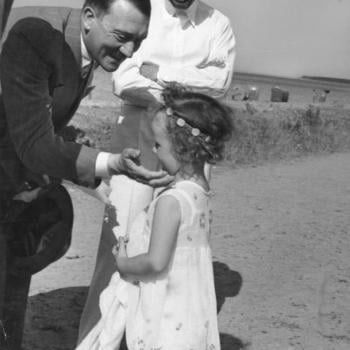R.I.P. Hans Küng (1928-2021)
On April 6 this year (2021) Catholic theologian Hans Küng of Switzerland died. He was 93. I call him a Catholic theologian even though the Vatican declared him not one in 1979. I have included an entire chapter about him and his theology in my The Journey of Modern Theology: From Reconstruction to Deconstruction (InterVarsity Press). There I treat him as he was called by Karl Rahner, a liberal theologian.
I knew Hans Küng—for three days. And I have read many of his books. During a conference on The Encounter of the Religions in China in Houston in the late 1980s I served as his chauffeur—driving him from place to place and sticking pretty close by his side. While I found him to be very nice and personable, he was not especially interested in discussing theology with me. At that time I was writing my chapter on his theology for 20th Century Theology: God and the World in a Transitional Age (InterVarsity Press) co-authored with Stanley J. Grenz. Typically, I would ask Küng a question I thought he hadn’t adequately answered in a book and he would respond with something like “I answered that on page such-and-such in such-and-such a book.”
One question he did answer was “What do you think is your best book?” I had one in mind and he said its title in German: Die Meschwerdung Gottes (The Incarnation). We agreed about that. It is a massive study of Hegel’s philosophy as it pertains to Christology and the Trinity as well as the immutability (or not) of God.
However, I also very much liked his book Does God Exist? An Answer for Today (Existiert Gott?) It’s much longer than it needs to be, but it gives a convincing argument for either God or nihilism.
*Sidebar: The opinions expressed here are my own (or those of the guest writer); I do not speak for any other person, group or organization; nor do I imply that the opinions expressed here reflect those of any other person, group or organization unless I say so specifically. Before commenting read the entire post and the “Note to commenters” at its end.*
One of my least favorite Küng books is probably his best-selling book: On Being a Christian (Christsein). It’s massive and something of a systematic theology; the Christology is very weak. According to Küng in that book, Jesus Christ was God’s deputy and representative, but he is strangely silent about Christ’s ontological deity.
I asked Küng about pluralism—Hick’s and Knitter’s (and others’) idea that Jesus Christ is one savior among many. His response was “That is a Caesar’s Rubicon I cannot cross.” In other words, no, he did not agree with that.
In spite of my disagreements with Küng, I still think he was one of the giants of 20th century theology (into the 21st century). His voice for reform of the Catholic Church will be missed. His voice against atheism will be missed. His plea for a universal ethic will be missed.
*Note to commenters: This blog is not a discussion board; please respond with a question or comment only to me. If you do not share my evangelical Christian perspective (very broadly defined), feel free to ask a question for clarification, but know that this is not a space for debating incommensurate perspectives/worldviews. In any case, know that there is no guarantee that your question or comment will be posted by the moderator or answered by the writer. If you hope for your question or comment to appear here and be answered or responded to, make sure it is civil, respectful, and “on topic.” Do not comment if you have not read the entire post and do not misrepresent what it says. Keep any comment (including questions) to minimal length; do not post essays, sermons or testimonies here. Do not post links to internet sites here. This is a space for expressions of the blogger’s (or guest writers’) opinions and constructive dialogue among evangelical Christians (very broadly defined).















